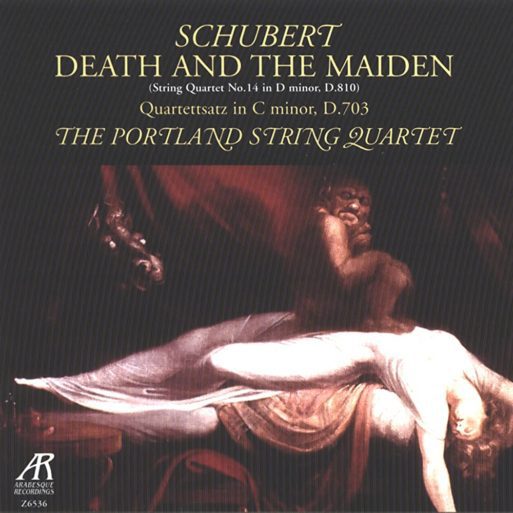
“Der Tod und das Mädchen” (Death and the Maiden) is a gorgeous “lied” composed by Franz Schubert in 1817. The word “lied” is a German term originally used to describe the fusion of poetry and music, or more specifically the practice of German-speaking composers setting Romantic German poems to music. “Der Tod und das Mädchen” is set for voice and piano, with the text derived from a poem by Matthias Claudius, a German poet and journalist who wrote under the penname Asmus. It became one of Schubert’s most acclaimed pieces, and was the basis for his string quartet of the same name.
The introduction of the song is in D minor, quiet and slow. The quality of the key of D minor was described in 1806 by German poet, organist, composer and journalist Christian Schubart as “melancholy womanliness, the spleen and humours brood.”
“Death and the Maiden” is in two parts. Following a pianissimo introduction, the first part is frenetic — the frightened cry of a sick young girl who wakes up to find Death at her door. Terrified, she begs, “Pass me by! Oh, pass me by!” She pleads with Death not to take her, exclaiming, “I am still young!”
Death enters in the second section. In contrast to the terror of the young maiden, it sings serenely, consolingly. The tempo decreases from the more agitated pace of the maiden’s song and returns the soft and slow dynamics of the introduction. Death approaches gently, with a sweet serenade. “I am a friend, and come not to punish,” it sings.”I am not fierce, softly shall you sleep in my arms!”
Death’s song modulates from the key of D minor to the key of F major. According to Schubart’s analysis, F major signifies “the triumph over difficulty, free sigh of relief uttered when hurdles are surmounted; [the] echo of a soul which has fiercely struggled and finally conquered lies in all uses of this key.” On the last syllable of Death’s section the key changes again to D major, which according to Schubart, is the “key of of triumph, of Hallelujahs, of war-cries, of victory-rejoicing.”
Schubert’s meditation on death is a comforting one, sending a message that death is not something to be feared. The song’s treatment of death is alternately beautiful and haunting, distressing, and finally, soothing. It’s a journey that provides solace for those who have lost someone they love or are grappling with grief.
Read the full lyrics to the song here and listen to it in the video below:

 “Der Tod und das Mädchen” by Franz Schubert
“Der Tod und das Mädchen” by Franz Schubert




 Funeral Favors Offer Visitors a Tangible Memento
Funeral Favors Offer Visitors a Tangible Memento















